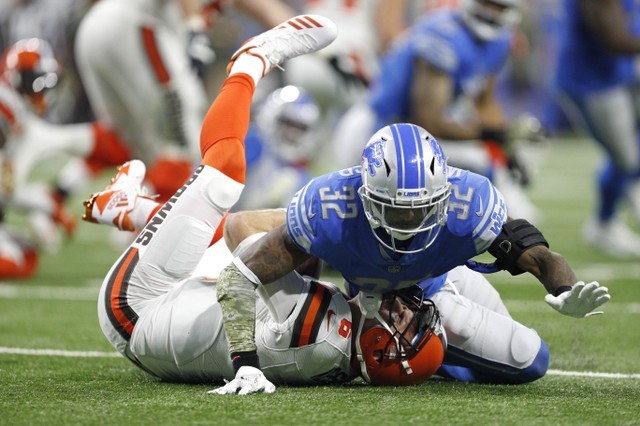With more information coming out about chronic traumatic encephalopathy — the degenerative brain disease commonly known as CTE — there’s been a spotlight on the NFL’s “concussion crisis.”
But concussions, though certainly frightening, aren’t the big worry, according to a new study — it’s any head impact.
Researchers from a Boston University-led team published their findings Thursday in the journal Brain.
In their study, researchers examined four post-mortem brains from teenage athletes who had sustained head injuries prior to their death and four teenage athletes without recent head injuries. Three athletes from the first group showed abnormalities, including one case of early-stage CTE.
Then, the researchers did experiments on mice, exposing them to two different kind of head injuries. The same conditions present in the head-injured teenage athletes’ brains were present in the head-injured mice — completely unrelated to signs of concussion.
Any head impact may lead to damaged blood vessels in the brain that “become leaky, resulting in blood proteins spilling into brain tissue and triggering brain inflammation,” researchers hypothesized.
Through brain scans, researchers did detect leaky blood vessels in the brains of those mice subjected to head impacted. Plus, researchers found that head impact caused “persistent changes in brain electrical functions, which may explain cognitive difficulties experienced by some people after these injuries.”
There was no correlation between signs of a concussion at the time of a head injury and CTE brain conditions, according to study author Lee E. Goldstein, MD, PhD.
“Our findings provide strong causal evidence linking head impact to [traumatic brain injury] and early CTE, independent of concussion,” Goldstein said in a statement. “The results may explain why approximately 20 percent of athletes with CTE never suffered a diagnosed concussion.”
This study provides the “best evidence we have so far,” he added, that it’s really those subconcussive impacts (those below the threshold of an actual concussion) that are dangerous and cause CTE.
“To prevent the disease, you have to prevent head impact,” Goldstein said. “It’s hits to the head that cause CTE.”



















